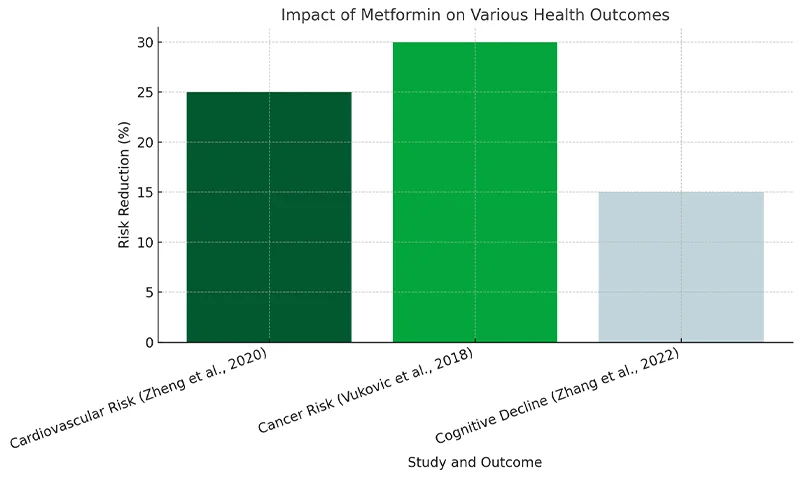Please read these Terms of Service (the “Terms” or “Agreement”) carefully. The Terms govern
your
use of the Service(s), Product(s), and Website (as defined below) and constitutes your consent
to this Agreement. PLEASE READ THESE TERMS CAREFULLY AS THEY CONSTITUTE A LEGAL AGREEMENT
BETWEEN YOU AND COMPANY.
THIS AGREEMENT CONTAINS A MANDATORY ARBITRATION PROVISION THAT, AS SET FORTH IN SECTION 20
BELOW, REQUIRES THE USE OF ARBITRATION ON AN INDIVIDUAL BASIS TO RESOLVE DISPUTES, RATHER THAN
JURY TRIALS OR ANY OTHER COURT PROCEEDINGS, OR CLASS ACTIONS OF ANY KIND.
This Agreement is among you and and our provider entities (collectively, “Company” or “We” or
“Us” or “Everlife MD”) concerning your use of (including any access to) the Everlife MD website
currently located at https://EverlifeMD.com (together with any materials and services available
therein, and successor site(s) thereto, the “Website”), use of our products and services,
mobile
applications, and/or other communication channels under our control such as email, telephone,
or
social media (“Service(s)”). This Agreement hereby incorporates by this reference any
additional
terms and conditions posted by Company through the Website, or otherwise made available to you
by Company (“Additional Terms”).
Please note that the Website may identify or make available products or services (which may
include
healthcare services, drugs or medical devices) of certain third-party healthcare providers.
Such
products or services are considered Third Party Materials, as defined
below.
Everlife
MD LLC., itself is
not a healthcare provider, and is not responsible for any such Third-Party Materials.
BY USING THE WEBSITE, YOU AFFIRM THAT YOU ARE AT LEAST EIGHTEEN (18) YEARS OF AGE (OR THE AGE
OF
MAJORITY) OR HAVE OBTAINED PARENTAL OR GUARDIAN CONSENT TO ENTER INTO THIS AGREEMENT IF YOU ARE
AT
LEAST THIRTEEN (13) YEARS OF AGE BUT UNDER EIGHTEEN (18) YEARS OF AGE. NOTWITHSTANDING THE
FOREGOING, MINORS UNDER THIRTEEN (13) YEARS OLD ARE NOT PERMITTED TO ACCESS OR USE THE WEBSITE
OR TO
ENTER INTO THIS AGREEMENT, EVEN IF A PARENT OR LEGAL GUARDIAN WOULD BE WILLING TO PROVIDE
CONSENT. A
parent or legal guardian of an individual under the age of eighteen (18) may prohibit such
individual’s use of the Website. If you are the parent or legal guardian of an individual under
the
age of eighteen (18) and believe that such individual has used the Website without your consent
or
authorization, please contact us at [email protected].
1. Changes
We may change this Agreement from time to time by notifying you of such changes by any
reasonable means, including by posting a revised Agreement through the Website. Any such
changes
will not apply to any dispute between you and us arising prior to the date on which we posted
the revised Agreement incorporating such changes or otherwise notified you of such changes.
Your use of the Website following any changes to this Agreement will constitute your acceptance
of such changes. The “Last Updated” legend above indicates when this Agreement was last
changed.
We may, at any time and without liability, modify or discontinue all or part of the Website
(including access to the Website via any third-party links); charge, modify or waive any fees
required to use the Website; or offer opportunities to some or all Website users.
2. Information Submitted Through the Website; Jurisdiction
Your submission of information through the Website and/or Services is governed by Company’s
Privacy
Notice, located at (the “Privacy Notice”). You
represent and warrant that
any information you provide in connection with the Website or Services is and will remain
accurate
and complete and that you will maintain and update such information as needed.
The Website and Services are controlled or operated (or both) from the United States and is not
intended to subject Company to any non-U.S. jurisdiction or law. The Website or Services may
not
be appropriate or available for use in some non-U.S. jurisdictions. Any use of the Website or
Services is at your own risk, and you must comply with all applicable laws, rules and
regulations in doing so. We may limit the Website or Service’s availability at any time, in
whole or in part, to any person, geographic area or jurisdiction that we choose.
3. Subscription Program Terms
By signing up for Everlife MD and creating an account, you agree to our subscription program
terms (“Subscription Program” or “Program”) and your membership in the Program will remain
in effect until it is cancelled. We may, in our sole discretion, terminate your membership
in the Program at any time without notice to you. Limit one account per person.
AS A MEMBER OF OUR SUBSCRIPTION PROGRAM, THE VALID CREDIT CARD NUMBER YOU PROVIDED AT THE
TIME
OF YOUR INITIAL PURCHASE AND ENROLLMENT WILL BE AUTOMATICALLY CHARGED ON A GOING-FORWARD
BASIS
AT THE TIME OF EACH SHIPMENT OF PRODUCT IN EITHER MONTHLY INSTALLMENTS OR EVERY TWO MONTHS
(AT
YOUR ELECTION) ON THE SAME DATE EACH MONTH OR THE SAME DATE EVERY TWO MONTHS (AS
APPLICABLE). IF
YOU WISH TO CANCEL YOUR PARTICIPATION IN OUR SUBSCRIPTION PROGRAM, YOU MAY DO SO BY
CANCELLING
YOUR MEMBERSHIP AT EVERLIFEMD.COM UNDER YOUR ACCOUNT TAB AFTER LOGGING IN. YOU MUST CANCEL
BEFORE
YOUR NEXT SHIPMENT IN ORDER TO AVOID BEING CHARGED FOR THE NEXT RECURRING SHIPMENT.
Refunds & Returns: Our partner doctors typically review submissions and write prescriptions
within a couple hours (If approved). Once that happens, our pharmacy begins to mix your
custom formula and ship out the same day in many cases. Consumer protection law prohibits
the return of prescription medication. Everlife MD does not accept returns or provide refunds
for prescription products once they have shipped.
It is your responsibility to provide current, complete, and accurate information for your
billing account. You are responsible for promptly updating all information to keep your
billing
account current, complete, and accurate (e.g., change in billing address, credit card
number,
credit card expiration date, or telephone number). You must promptly notify us if your
credit
card information is cancelled or is no longer valid (e.g., loss or theft). Changes to such
information can be made at Everlifemd.com under payment information under your account tab. If
your
credit card fails to process for a shipment, your membership in our Subscription Program
may
be
terminated. Company may seek pre-authorization of your credit card account prior to your
purchase to verify that the credit card is valid and the necessary funds or credit
available
to
cover your purchase.
Price. Company reserves the right to determine the pricing of its products. Company will
make
reasonable efforts to keep pricing information published on the website up to date. We
encourage
you to check our website periodically for current pricing information. Company may change
the
fees for any feature or product, including additional fees or charges, if Company provides
advance notice of changes before they apply. Company, at its sole discretion, may make
promotional offers with different features and different pricing to any of Company’s
customers.
These promotional offers, unless made to you, will not apply to your offer or these Terms.
No Purchase For Resale Allowed.
Company sells its products direct to You (end consumers) through the subscription service.
Purchase of products for resale (to other consumers, businesses, or third parties) is
strictly
prohibited. If Company believes you are involved in purchase for resale, Company reserves
the
right to take any action against you, including, without limitation, to restrict sales to
you,
cancel your orders, and/or suspend or close your account.
4. Consent to Communications; Acknowledgments
By entering into this Agreement you agree to receive communications from Company, including
via email, text message, SMS message, voice call, and push notifications
(“Communications”).
Voice calls and texts will be to the phone number you have supplied with your account
information. You agree that texts may be made using automatic dialing systems or other
automated technologies. Communications from or on behalf of Company may include but are not
limited to: operational communications concerning your user account or use of the Company’s
products and platform; informational communications concerning shipping, your payment
method
on file, messages from your provider, and reminders to complete your account set-up;
marketing content such as updates concerning new and existing products; and communications
concerning promotions run by us or our third-party partners. Standard text messaging
charges
applied by your cell phone carrier will apply to text messages we send. Your agreement to
receive Communications is not a condition of any purchase.
IF YOU WISH TO OPT OUT OF PROMOTIONAL EMAILS, YOU CAN UNSUBSCRIBE FROM OUR PROMOTIONAL
EMAIL
LIST BY FOLLOWING THE UNSUBSCRIBE OPTIONS IN THE PROMOTIONAL EMAIL ITSELF. IF YOU WISH TO
OPT OUT OF ALL TEXTS (INCLUDING OPERATIONAL, PROMOTIONAL, AND TRANSACTIONAL TEXTS), YOU CAN
TEXT THE WORD “STOP” FROM THE MOBILE DEVICE RECEIVING THE MESSAGES, HOWEVER, YOU
ACKNOWLEDGE
THAT OPTING OUT OF RECEIVING ALL TEXTS MAY IMPACT YOUR USE OF THE SERVICE.
- You understand that you will periodically receive correspondence from Company at the
email address you register with your account. Text message frequency varies. While
correspondence sent from Company to you will never contain your photos or payment
information, they will sometimes include information relating to the details of your
treatment (as applicable). Accordingly, it is critical that you safeguard your
designated email address and restrict access thereto. The registration of an email
address with your account indicates your consent for Company to transmit your Personal
Information, including your Health Information, to such address.
For more information
on
Personal Information and Health Information, review our Privacy
Notice.
- You understand that the telehealth services and any customized prescription products
made available through the Website are provided by U.S. licensed medical providers. Everlife
MD LLC., is not itself a healthcare provider.
- You understand that the Website, Services, and Products (as “Products” is defined in
Section 6, below) facilitate consultations limited to the diagnosis and treatment (and
related conditions), and not for any other medical conditions, including cancer
conditions.
- You understand that the Website and Services are not a substitute for the in-person
treatment or advice of your local specialist, primary care physician or any other
qualified healthcare professional.
- You understand that you should never delay seeking advice from your specialist, primary
care physician or any other health professionals due to any diagnosis, advice or other
information provided (or the omission of any such information) by Company, the Website,
Services, or Products, or a healthcare provider through Company, the Website, Services,
or Products.
-
You understand that the Website, Services, and Products are not
to be used in connection with medical emergencies. If you are experiencing a medical
crisis, please call 9-1-1 or contact your local emergency assistance services
immediately. If you are not feeling well, please contact your primary care physician.
- You understand that Company undertakes no obligation to review the inactive ingredients
and/or the base ingredients in any product that is recommended or sold to you through
the Website or Services, including, without limitation, to ascertain that you are not
allergic to such inactive or base ingredients. You further understand that it is solely
your responsibility to review those ingredients, as listed on the Website. If you have
any questions or are experiencing any issues with Company Communications to you, please
contact [email protected]
5. Rules of Conduct
In connection with the Services, Website, and Products, you must not:
- Contact or seek to contact any healthcare professional associated with Company outside of
the
Website. This is in order to protect both patients and healthcare professionals and to
ensure
that diagnosis and treatment is delivered in a reliable, continuous and controlled
environment.
- Post, transmit or otherwise make available through or in connection with the Website any
materials that are or may be: (a) threatening, harassing, degrading, hateful or
intimidating
or
otherwise fail to respect the rights and dignity of others; (b) defamatory, libelous,
fraudulent
or otherwise tortious; (c) obscene, indecent, pornographic or otherwise objectionable; or
(d)
protected by copyright, trademark, trade secret, right of publicity or privacy or any other
proprietary right, without the express prior written consent of the applicable owner.
- Post, transmit or otherwise make available through or in connection with the Website any
virus,
worm, Trojan horse, Easter egg, time bomb, spyware or other computer code, file or program
that
is or is potentially harmful or invasive or intended to damage or hijack the operation of,
or to
monitor the use of, any hardware, software or equipment (each, a “Virus”).
- Allow, enable, or otherwise support the transmission of unsolicited or unauthorized
advertising,
junk or bulk email (SPAM), chain letters, letters relating to a pyramid scheme, or any
other
unsolicited commercial or non-commercial communication.
- Use the Website for any commercial purpose or for any purpose that is fraudulent or
otherwise
unlawful.
- Create a false identity for the purpose of misleading others, impersonate any person or
entity,
or otherwise misrepresent your affiliation with a person or entity.
- Harvest or collect information about users of the Website.
- Interfere with or disrupt the operation of the Website or the servers or networks used to
make
the Website available, including by hacking or defacing any portion of the Website; or
violate
any requirement, procedure or policy of such servers or networks.
- Restrict or inhibit any other person from using the Website.
- Infringe the patent, trademark, trade secret, copyright or other intellectual property or
other
rights of another person or entity.
- Reproduce, modify, adapt, translate, create derivative works of, sell, rent, lease, loan,
timeshare, distribute or otherwise exploit any portion of (or any use of) the Website
except
as
expressly authorized herein or otherwise use the Website for the benefit of a third party
or
to
operate a service bureau, without Company’s express prior written consent.
- Reverse engineer, decompile or disassemble any portion of the Website, except where such
restriction is expressly prohibited by applicable law.
- Remove any copyright, trademark or other proprietary rights notice from the Website.
- Frame or mirror any portion of the Website, or otherwise incorporate any portion of the
Website
into any product or service, without Company’s express prior written consent.
- Systematically download and store Website content.
- Attempt to disable, bypass, modify, defeat or otherwise circumvent any security related
tools
incorporated into or used in connection with the Website.
- Use any robot, spider, site search/retrieval application or other manual or automatic
device
to
retrieve, index, “scrape,” “data mine” or otherwise gather Website content, or reproduce or
circumvent the navigational structure or presentation of the Website, without Company’s
express
prior written consent.
- “Frame” or “mirror” any Everlife MD content which forms part of the Website, place pop-up
windows
over its pages, or otherwise affect the display of its pages.
In connection with the Website, you shall notify Company immediately if you become aware of any
inaccuracies, errors, omissions or inconsistencies in the information or content provided
through
the Website and to comply with any corrective action taken by Company.
You are responsible for obtaining, maintaining and paying for all hardware and all
telecommunications and other services needed to use the Website.
We reserve the right to investigate any transactions, activity, or interaction with our
Website,
Services, or Product(s) that we believe, in our sole discretion, is abusing or has abused the
Terms,
Services, or Product(s). We reserve the right to cancel any order, shipment, consultation,
and/or
terminate any account that we believe, in our sole discretion, is abusing or has abused the
Terms,
Services, or Product(s), including, without limitation, by engaging in a pattern of creating
multiple accounts. Any failure to comply with this Agreement, any fraud or abuse, or any
misrepresentation of any information furnished to Company by you or anyone acting on your
behalf
may
result in the termination of your account. If Company has any reason to suspect fraudulent
activity
is associated with your account, Company reserves the right to delay or withhold Products
and/or
Services. Any suspected or actual cases of fraud activity will be escalated and reviewed in
accordance with our fraud process. Company decisions are final.
6. Products
The Website may make available listings, descriptions and images of goods or services or
related
coupons, discounts or trials of goods or services (collectively, “Products”), as well as
references
and links to Products. The availability of any Product (including the validity of any coupon or
discount) are subject to change at any time without notice. Certain weights, measures and
similar
descriptions are approximate and are for convenience only. It is your responsibility to
ascertain
and obey all applicable local, state, federal and foreign laws (including minimum age
requirements)
regarding the purchase, possession and use of any Product. Everlife MD reserves the right to limit
any
initial offers to new subscribers.
7. Transactions
We may make available the ability to (i) communicate with a healthcare provider and (ii)
purchase or
otherwise obtain certain Products through the Website, including goods or services (both (i)
and
(ii) referred to as a “Transaction”). If you wish to make a Transaction, you may be asked to
supply
certain relevant information, such as your credit card number and its expiration date, your
billing
address and your shipping information. You represent and warrant that you have the right to use
any
credit card or other payment information that you submit in connection with a Transaction. By
submitting such information, you hereby authorize Company to charge you and grant to us the
right to
provide such information to third parties for purposes of facilitating Transactions.
Verification of
information may be required prior to the acknowledgment or completion of any Transaction. If
your
payment method fails or fees associated with your Account are past due, we may collect fees
owed
using other collection mechanisms, include charging other payment methods on file (including
with
Stripe) and/or retaining collection agencies and legal counsel. By making a Transaction, you
represent that the applicable Products will be used only in a lawful manner. We reserve the
right to
change the types of Transactions for which we charge, and we reserve the right to charge for
consultations with your healthcare provider. Subscriptions of Products or services are subject
to
the terms and conditions applicable to such trials and subscriptions available on the Website.
Company reserves the right, including without prior notice, to limit the available quantity of
or
discontinue making available any Product; to impose conditions on the honoring of any coupon,
discount, or similar promotion; to bar any user from making any Transaction; and to refuse to
provide any user with any Product.
Refunds and exchanges will be subject to Company’s applicable refund and
exchange
policies
You agree to pay all charges incurred by you or on your behalf through
the Website, at the prices in effect when such charges are incurred, including all shipping and
handling charges. In addition, you are responsible for any taxes applicable to your
Transactions.
While it is our practice to confirm orders by e-mail, the receipt of an e-mail order
confirmation
does not constitute our acceptance of an order or our confirmation of an offer to sell a
Product
or
service.
Products will be shipped to an address designated by you, if applicable, so long as such
address
is
complete and complies with the shipping restrictions contained on the Website. All Transactions
are
made pursuant to a shipment contract, and, as a result, risk of loss and title for Products
pass
to
you upon delivery of the Products to the carrier. You are responsible for filing any claims
with
carriers for damaged and/or lost shipments.
8. Registration; User Names and Passwords
You may need to register to use all or part of the Website. We may reject, or require that you
change, any user name, password or other information that you provide to us in registering.
Your
user name and password are for your personal use only and should be kept confidential; you, and
not
Company, are responsible for any use or misuse of your user name or password, and you must
promptly
notify us of any confidentiality breach or unauthorized use of your user name, password or
Website
account. You are limited to one active Website account and You may not use the Website account
of
any other Everlife MD user at any time. If you are under the age of 18, your user name and password
should also be shared with your parent or legal guardian for the purposes of monitoring your
medical
care.
Your cooperation is imperative in safeguarding your Personal Information. Choose your account
password carefully, as anyone with access to your account password will be able to assume your
online identity and view your medical information, change your Personal Information, and
communicate
with your Everlife MD affiliated health care providers. It is your responsibility to prevent
disclosure
of your password to others, and to change your password if you feel that its security has been
compromised. You may change your password from your account profile page after logging into
your
account. Additionally, you will periodically receive correspondence from Company at the email
address you register with your account. While these emails will never contain your photos or
payment
information, they will sometimes include information relating to the details of your treatment
(as
applicable). Accordingly, it is critical that you safeguard your designated email address and
restrict access thereto. The registration of an email address with your account indicates your
consent for Company to transmit your Personal Information, including your Health Information,
to
such address. For more information regarding our privacy practices, please review our Privacy
Notice
located at
here.
9. Profiles and Forums
Website visitors may make available certain materials (each, a “Submission”) through or in
connection with the Website, including on profile pages, on social media or on the Website’s
interactive services, such as message boards and other forums, and chatting, commenting and
other
messaging functionality. Submissions do not include your health information. Company has no
control
over and is not responsible for any use or misuse (including any distribution) by any third
party of
Submissions. IF YOU CHOOSE TO MAKE ANY OF YOUR PERSONALLY IDENTIFIABLE OR OTHER INFORMATION
PUBLICLY
AVAILABLE THROUGH THE WEBSITE, YOU DO SO AT YOUR OWN RISK.
10. License
For purposes of clarity, you retain ownership of your Submissions. For each Submission, you
hereby
grant to us a worldwide, royalty-free, fully paid-up, non-exclusive, perpetual, irrevocable,
transferable and fully sublicensable (through multiple tiers) license, without additional
consideration to you or any third party, to reproduce, distribute, perform and display
(publicly
or
otherwis e), create derivative works of, adapt, modify and otherwise use, analyze and exploit
such
Submission, in any format or media now known or hereafter developed, and for any purpose
(including
promotional purposes, such as testimonials).
In addition, if you provide to us any ideas, proposals, suggestions or other materials
(“Feedback”),
whether related to the Website or otherwise, such Feedback will be deemed a Submission, and you
hereby acknowledge and agree that such Feedback is not confidential and that your provision of
such
Feedback is gratuitous, unsolicited and without restriction, and does not place Company under
any
fiduciary or other obligation.
11. Monitoring
eview, analyze, store, evaluate, alter or remove Submissions or any messages, information,
content
or other materials sent to you, or received by you, in connection with the Website, at any
time,
including while it is in transit, and before and after it is stored or made available through
the
Website, and to monitor, review, analyze or evaluate your access to or use of the Website, in
each
case by manual, automated or other means, and in each case for any purpose, including marketing
and
advertising and such purposes as may be described in the Privacy Notice. We may disclose
information
regarding your access to and use of the Website, and the circumstances surrounding such access
and
use, to anyone for any reason or purpose.
12. Your Limited Rights
Subject to your compliance with this Agreement, and solely for so long as you are permitted by
Company to use the Website, you may view one (1) copy of any portion of the Website to which we
provide you access under this Agreement, on any single device, solely for your personal,
non-commercial use.
13. Company’s Proprietary Rights
We and our suppliers own the Website, including the software, code, proprietary methods,
systems,
content and any other intellectual property or proprietary rights used to operate the Website
(the
“Website IP”), which is protected by proprietary rights
and
laws. The Website IP also includes our trade names, trademarks and service marks, which include
EVERLIFE
MD, and any associated logos. All Website IP on the Website not owned by us are the property of
their respective owners. You may not use Website IP in connection with any product or service
that
is not ours, or in any manner that is likely to cause confusion. Except for the limited license
set
forth in Section 12, nothing contained on the Website should be construed as granting any right
to
use any Website IP without the express prior written consent of the owner.
14. Third Party Materials; Links
Certain Website functionality may make available access to information, products, services and
other
materials made available by third parties, including Submissions (“ Third
Party
Materials”), or allow for the routing or transmission of such Third-Party Materials,
including via links. By using such functionality, you are directing us to access, route and
transmit
to you the applicable Third Party Materials.
We neither control nor endorse, nor are we responsible for, any Third Party
Materials, including the accuracy, validity, timeliness, completeness, reliability,
integrity, quality, legality, usefulness or safety of Third Party
Materials, or
any
intellectual property rights therein. Certain Third Party Materials may,
among
other things, be inaccurate, misleading or deceptive. Nothing in this Agreement shall be deemed
to
be a representation or warranty by Company with respect to any Third Party
Materials. We have no obligation to monitor Third Party
Materials, and
we
may block or disable access to any Third Party Materials (in whole or
part)
through
the Website at any time. In addition, the availability of any Third Party
Materials
through the Website does not imply our endorsement of, or our affiliation with, any provider of
such
Third Party Materials, nor does such availability create any legal
relationship
between you and any such provider.
YOUR USE OF Third Party Materials IS AT YOUR OWN RISK AND IS SUBJECT TO
ANY
ADDITIONAL TERMS, CONDITIONS AND POLICIES APPLICABLE TO SUCH Third Party
Materials
(SUCH AS TERMS OF SERVICE OR PRIVACY POLICIES OF THE PROVIDERS OF SUCH Third
Party
Materials). COMPANY ACCEPTS NO RESPONSIBILITY AND EXPRESSLY DISCLAIMS ANY AND ALL
LIABILITY
RELATED TO YOUR USE OF ANY THIRD-PARTY WEBSITES OR SERVICES.
15. Promotions
Any sweepstakes, contests, raffles, surveys, games or similar promotions (collectively,
“Promotions”) made available through the Website may be governed by rules that are separate
from
this Agreement. If you participate in any Promotions, please review the applicable rules as
well
as
our Privacy Notice. If the rules for a Promotion conflict with this Agreement, the Promotion
rules
will govern.
16. Disclaimer of Warranties
TO THE FULLEST EXTENT PERMITTED UNDER APPLICABLE LAW: (A) THE WEBSITE AND ANY PRODUCTS AND
THIRD
PARTY MATERIALS ARE MADE AVAILABLE TO YOU ON AN “AS IS,” “WHERE IS” AND “WHERE AVAILABLE”
BASIS,
WITHOUT ANY WARRANTIES OF ANY KIND, WHETHER EXPRESS, IMPLIED OR STATUTORY; AND (B) COMPANY
DISCLAIMS
ALL WARRANTIES WITH RESPECT TO THE WEBSITE AND ANY PRODUCTS AND THIRD PARTY MATERIALS,
INCLUDING
THE
WARRANTIES OF MERCHANTABILITY, FITNESS FOR A PARTICULAR PURPOSE, NON-INFRINGEMENT AND TITLE.
YOU UNDERSTAND AND AGREE THAT ANY INFORMATION, PRODUCTS, OR SERVICES OBTAINED THROUGH THE USE
OF
THE
WEBSITE IS OBTAINED AT YOUR OWN DISCRETION AND RISK, AND THAT YOU WILL BE SOLELY RESPONSIBLE
FOR
ANY
DAMAGE OR LOSS THAT RESULTS FROM THE USE THEREOF. NO ADVICE OR INFORMATION, WHETHER ORAL OR
WRITTEN,
OBTAINED BY YOU FROM COMPANY OR THE WEBSITE WILL CREATE ANY WARRANTY NOT EXPRESSLY MADE HEREIN.
ALL DISCLAIMERS OF ANY KIND (INCLUDING IN THIS SECTION AND ELSEWHERE IN THIS AGREEMENT) ARE
MADE
FOR
THE BENEFIT OF BOTH COMPANY AND ANY PROVIDER ENTITIES, AND THEIR AFFILIATES AND RESPECTIVE
SHAREHOLDERS, DIRECTORS, OFFICERS, EMPLOYEES, AFFILIATES, AGENTS, REPRESENTATIVES, LICENSORS,
SUPPLIERS AND SERVICE PROVIDERS (COLLECTIVELY, THE “AFFILIATED ENTITIES”), AND THEIR RESPECTIVE
SUCCESSORS AND ASSIGNS.
While we try to maintain the timeliness, integrity and security of the Website, we do not
guarantee
that the Website is or will remain updated, complete, correct or secure, or that access to the
Website will be uninterrupted. The Website may include inaccuracies, errors and materials that
violate or conflict with this Agreement. Additionally, third parties may make unauthorized
alterations to the Website. If you become aware of any such alteration, contact us at [email protected] with a description of such alteration and
its
location on the Website.
17. Limitation of Liability
TO THE FULLEST EXTENT PERMITTED UNDER APPLICABLE LAW: (A) COMPANY WILL NOT BE LIABLE FOR ANY
INDIRECT, INCIDENTAL, CONSEQUENTIAL, SPECIAL, EXEMPLARY OR PUNITIVE DAMAGES OF ANY KIND, UNDER
ANY
CONTRACT, TORT (INCLUDING NEGLIGENCE), STRICT LIABILITY OR OTHER THEORY, INCLUDING DAMAGES FOR
LOSS
OF PROFITS, USE OR DATA, LOSS OF OTHER INTANGIBLES, LOSS OF SECURITY OF SUBMISSIONS (INCLUDING
UNAUTHORIZED INTERCEPTION BY THIRD PARTIES OF ANY SUBMISSIONS), EVEN IF ADVISED IN ADVANCE OF
THE
POSSIBILITY OF SUCH DAMAGES OR LOSSES; (B) WITHOUT LIMITING THE FOREGOING, COMPANY WILL NOT BE
LIABLE FOR DAMAGES OF ANY KIND RESULTING FROM YOUR USE OF OR INABILITY TO USE THE WEBSITE OR
FROM
ANY PRODUCTS OR THIRD PARTY MATERIALS, INCLUDING FROM ANY VIRUS THAT MAY BE TRANSMITTED IN
CONNECTION THEREWITH; (C) YOUR SOLE AND EXCLUSIVE REMEDY FOR DISSATISFACTION WITH THE WEBSITE
OR
ANY
PRODUCTS OR THIRD PARTY MATERIALS IS TO STOP USING THE WEBSITE; AND (D) THE MAXIMUM AGGREGATE
LIABILITY OF COMPANY FOR ALL DAMAGES, LOSSES AND CAUSES OF ACTION, WHETHER IN CONTRACT, TORT
(INCLUDING NEGLIGENCE) OR OTHERWISE, SHALL BE THE GREATER OF (1) THE TOTAL AMOUNT, IF ANY, PAID
BY
YOU TO COMPANY TO USE THE WEBSITE AND (2) ONE HUNDRED U.S. DOLLARS ($100). IF YOU ARE
DISSATISFIED
WITH ANY PORTION OF THE WEBSITE, THE PRODUCTS, OR THIS AGREEMENT, YOUR SOLE AND EXCLUSIVE
REMEDY
IS
TO DISCONTINUE USE OF THE WEBSITE AND/OR PRODUCTS. ALL LIMITATIONS OF LIABILITY OF ANY KIND
(INCLUDING IN THIS SECTION AND ELSEWHERE IN THIS AGREEMENT) ARE MADE FOR THE BENEFIT OF BOTH
COMPANY
AND THE AFFILIATED ENTITIES, AND THEIR RESPECTIVE SUCCESSORS AND ASSIGNS.
Applicable law in states other than New Jersey (which is addressed in Section 24, below) may
not
allow for limitations on certain implied warranties, or exclusions or limitations of certain
damages; solely to the extent that such law applies to you, some or all of the above
disclaimers,
exclusions or limitations of liability may not apply to you, and you may have certain
additional
rights.
18. Indemnity and Release
To the fullest extent permitted under applicable law, you agree to defend, indemnify and hold
harmless Company and the Affiliated Entities, and their respective successors and assigns, from
and
against all claims, liabilities, damages, judgments, awards, losses, costs, expenses and fees
(including attorneys’ fees) arising out of or relating to (a) your use of, or activities in
connection with, the Website (including all Submissions); and (b) any violation or alleged
violation
of this Agreement by you.
19. Termination
This Agreement is effective until terminated. You may deactivate your Account at any time, for
any
reason, by sending an email to [email protected]. Company may
terminate, discontinue, cancel, suspend, change or limit access Your use of the Website or
Services
at any time and without prior notice, for any or no reason, including if Company believes that
you
have violated or acted inconsistently with the letter or spirit of this Agreement or if any
amounts
due by you to Company are past due. Upon any such termination or suspension, your right to use
the
Website will immediately cease, and Company may, without liability to you or any third party,
immediately deactivate or delete your user name, password and account, and all associated
materials,
without any obligation to provide any further access to such materials. Your medical records
will be
retained by Company for a period of at least five (5) years, unless a longer period is required
by
state or federal law, after which they may be destroyed. If you are younger than twenty-three
(23)
years of age on the date the records may potentially be destroyed, your records will be kept at
least until you reach the age of 23, or as required by state or federal law. Sections 2–6, 8–11
and
13–25 shall survive any expiration or termination of this Agreement. Any termination or
discontinuance of the Website pursuant to the provisions set forth in this Section 19 shall be
subject to compliance with any notice or waiting period provided by applicable law. You agree
that
Company will not be liable to you or to any third party for any modification, suspension, or
termination of your ability to use the Website, Services, or Product(s). If you are
dissatisfied
with any aspect of the Website, Services, or Product(s) at any time, your sole and exclusive
remedy
is to cease participating in the Website, Services, and Product(s). Termination will not
prejudice
either you or our remedies at law or in equity.
20. Dispute Resolution & Arbitration;
Governing Law
(a) Generally. In the interest of resolving disputes between you and Company in the most
expedient
and cost-effective manner, and except as described in Section 20(b), you and Company agree
that
every dispute arising in connection with this Agreement will be resolved by binding
arbitration.
Arbitration is less formal than a lawsuit in court. Arbitration uses a neutral arbitrator
instead of
a judge or jury, may allow for more limited discovery than in court, and can be subject to
very
limited review by courts. Arbitrators can award the same damages and relief that a court
can
award.
This agreement to arbitrate disputes includes all claims arising out of or relating to any
aspect of
this Agreement, your use of the services and/or the Everlife MD products, and our
communications
with
you, whether based in contract, tort, statute, fraud, misrepresentation, or any other legal
theory,
and regardless of whether a claim arises during or after the termination of this Agreement.
YOU
UNDERSTAND AND AGREE THAT, BY ENTERING INTO THIS AGREEMENT, YOU AND COMPANY ARE EACH
WAIVING
THE
RIGHT TO A TRIAL BY JURY OR TO PARTICIPATE IN A CLASS ACTION.
(b) Exceptions. Despite the provisions of Section 20(a), nothing in this Agreement will be
deemed to waive, preclude, or otherwise limit the right of either party to: (i) bring an
individual action in small claims court; (ii) pursue an enforcement action through the
applicable federal, state, or local agency if that action is available; (iii) seek
injunctive relief in a court of law in aid of arbitration; or (iv) to file suit in a court
of law to address an intellectual property infringement claim.
(c) Arbitrator. Any arbitration between you and Company will be settled under the Federal
Arbitration Act and administered by the American Arbitration Association (“AAA”) under its
Consumer
Arbitration Rules (collectively, “AAA Rules”) as modified by this Agreement. The AAA Rules
and
filing forms are available online at www.adr.org, by calling the AAA at 1-800-778-7879, or
by
contacting Company. The arbitrator has exclusive authority to resolve any dispute relating
to the
interpretation, applicability, or enforceability of this binding arbitration agreement.
(d) Notice of Arbitration; Process. A party who intends to seek arbitration must first send
a
written notice of the dispute to the other party by certified U.S. Mail or by Federal
Express
(signature required) or, only if that other party has not provided a current physical
address, then
by electronic mail (“Notice of Arbitration”). Company’s address for Notice is:. The Notice
of
Arbitration must: (i) describe the nature and basis of the claim or dispute; and (ii) set
forth the
specific relief sought (“Demand”). The parties will make good faith efforts to resolve the
claim
directly, but if the parties do not reach an agreement to do so within 30 days after the
Notice of
Arbitration is received, you or Company may commence an arbitration proceeding. All
arbitration
proceedings between the parties will be confidential unless otherwise agreed by the parties
in
writing. During the arbitration, the amount of any settlement offer made by you or by
Company must
not be disclosed to the arbitrator until after the arbitrator makes a final decision and
award, if
any. If the arbitrator awards you an amount higher than the last written settlement amount
offered
by Company in settlement of the dispute prior to the award, Company will pay to you the
higher of:
(A) the amount awarded by the arbitrator; or (B) $10,000.
(e) Fees. If you commence arbitration in accordance with this Agreement, Company will
reimburse you
for your payment of the filing fee, unless your claim is for more than $10,000, in which
case the
payment of any fees will be decided by the AAA Rules. Any arbitration hearing will take
place at a
location to be agreed upon in city, state, but if the claim is for $10,000 or less, you may
choose
whether the arbitration will be conducted: (i) solely on the basis of documents submitted
to
the
arbitrator; (ii) through a non-appearance based telephone hearing; or (iii) by an in-person
hearing
as established by the AAA Rules in the county (or parish) of your billing address. If the
arbitrator
finds that either the substance of your claim or the relief sought in the Demand is
frivolous or
brought for an improper purpose (as measured by the standards set forth in Federal Rule of
Civil
Procedure 11(b)), then the payment of all fees will be governed by the AAA Rules. In that
case, you
agree to reimburse Company for all monies previously disbursed by it that are otherwise
your
obligation to pay under the AAA Rules. Regardless of the manner in which the arbitration is
conducted, the arbitrator must issue a reasoned written decision sufficient to explain the
essential
findings and conclusions on which the decision and award, if any, are based. The arbitrator
may make
rulings and resolve disputes as to the payment and reimbursement of fees or expenses at any
time
during the proceeding and upon request from either party made within 14 days of the
arbitrator’s
ruling on the merits.
(f) No Class Actions. YOU AND COMPANY AGREE THAT EACH MAY BRING CLAIMS AGAINST THE OTHER
ONLY IN
YOUR OR ITS INDIVIDUAL CAPACITY AND NOT AS A PLAINTIFF OR CLASS MEMBER IN ANY PURPORTED
CLASS OR
REPRESENTATIVE PROCEEDING. Further, unless both you and Company agree otherwise, the
arbitrator may
not consolidate more than one person’s claims, and may not otherwise preside over any form
of a
representative or class proceeding.
(g) Modifications to this Arbitration Provision. If Company makes any future change to this
arbitration provision, other than a change to Company’s address for Notice of Arbitration,
you may
reject the change by sending us written notice within 30 days of the change to Company’s
address for
Notice of Arbitration.
(h) Enforceability. If Section 20(f) is found to be unenforceable or if the entirety of
this
Section
20 is found to be unenforceable, then the entirety of this Section 20 will be null and void
and, in
that case, the parties agree that the exclusive jurisdiction and venue described in Section
21 will
govern any action arising out of or related to this Agreement.
(i) If you do not wish to resolve Disputes by binding arbitration, you may opt out of the
provisions
of this Section within 30 calendar days after the date that you agree to these Terms by
sending a
letter to Everlife MD, Inc., Attention: Legal Department –. In order to be effective, the
letter
must be
received by Company within 30 calendar days of your acceptance of these Terms and your
letter must
specify: your full legal name, your current residential address, the email address
associated with
your account on the Service, and a statement that you wish to opt out of arbitration
(“Opt-Out
Notice”).
This Agreement is governed by the laws of the State of California without regard to
conflict
of law
principles. You and Company submit to the personal and exclusive jurisdiction of the state
courts
and federal courts located within San Francisco County, California for resolution of any
lawsuit or
court proceeding permitted under these Terms. We operate the Website from our offices in
California,
and we make no representation that the Website is appropriate or available for use in other
locations.
21. Filtering
We hereby notify you that parental control protections (such as computer hardware, software or
filtering services) are commercially available that may assist you in limiting access to
material
that is harmful to minors. Information identifying current providers of such protections is
available from https://en.wikipedia.org/wiki/Comparison_of_content-control_software_and_providers.
Please note that Company does not endorse any of the products or services listed on such site.
22. Information or Complaints
If you have a question or complaint regarding the Website, Product(s), or Service(s), please
send an
e-mail to [email protected]. You may also contact us by
writing.
Please note that e-mail communications will not necessarily be secure; accordingly you should
not
include credit card information or other sensitive information in your e-mail correspondence
with
us. California residents may reach the Complaint Assistance Unit of the Division of Consumer
Services of the California Department of Consumer Affairs by mail at 1625 North Market Blvd.,
Sacramento, CA 95834, or by telephone at (916) 445-1254 or (800) 952-5210.
23. Copyright Infringement Claims
The Digital Millennium Copyright Act of 1998 (the “DMCA”) provides recourse for copyright
owners
who
believe that material appearing on the Internet infringes their rights under U.S. copyright
law.
If
you believe in good faith that materials available on the Website infringe your copyright, you
(or
your agent) may send to Company a written notice by mail, e-mail or fax, requesting that
Company
remove such material or block access to it. If you believe in good faith that someone has
wrongly
filed a notice of copyright infringement against you, the DMCA permits you to send to Company a
counter-notice. Notices and counter-notices must meet the then-current statutory requirements
imposed by the DMCA. See http://www.copyright.gov/ for
details. Notices and counter-notices must be
sent in writing to Company’s DMCA agent as follows: by e-mail to [email protected]. We suggest that
you consult your legal advisor before filing a DMCA notice or counter-notice.
24. Important Note to New Jersey Consumers
If you are a consumer residing in New Jersey, the following provisions of this Agreement do not
apply to you (and do not limit any rights that you may have) to the extent they are
unenforceable
under New Jersey law: (a) the disclaimer of liability for any indirect, incidental,
consequential,
special, exemplary or punitive damages of any kind (for example, to the extent unenforceable
under
the New Jersey Punitive Damages Act, New Jersey Products Liability Act, New Jersey Uniform
Commercial Code and New Jersey Consumer Fraud Act); (b) the limitation on liability for loss of
profits or loss or use of data (for example, to the extent unenforceable under the New Jersey
Identity Theft Protection Act and New Jersey Consumer Fraud Act); (c) application of the
limitations
of liability to the recovery of damages that arise under any contract, tort (including
negligence),
strict liability or any other theory (for example, to the extent such damages are recoverable
by
a
consumer under New Jersey law, including the New Jersey Products Liability Act); (d) the
requirement
that you indemnity Company (for example, to the extent the scope of such indemnity is
prohibited
under New Jersey law); and (e) the California governing law provision (for example, to the
extent
that your rights as a consumer residing in New Jersey are required to be governed by New Jersey
law).
25. Export Controls
You are responsible for complying with United States export controls and for any violation of
such
controls, including any United States embargoes or other federal rules and regulations
restricting
exports. You represent, warrant and covenant that you are not (a) located in, or a resident or
a
national of, any country subject to a U.S. government embargo or other restriction, or that has
been
designated by the U.S. government as a “terrorist supporting” country; or (b) on any of the
U.S.
government lists of restricted end users.
26. Miscellaneous
This Agreement does not, and shall not be construed to, create any partnership, joint venture,
employer-employee, agency or franchisor-franchisee relationship between you and Company. If any
provision of this Agreement is found to be unlawful, void or for any reason unenforceable, that
provision will be deemed severable from this Agreement and will not affect the validity and
enforceability of any remaining provision. You may not assign, transfer or sublicense any or
all
of
your rights or obligations under this Agreement without our express prior written consent. We
may
assign, transfer or sublicense any or all of our rights or obligations under this Agreement
without
restriction, including, without limitation, those rights or obligations relating to your
Website
account and any information that you provide or that has been provided on your behalf to
Company
or
that has been collected by Company in connection with Company’s business operations or through
the
Website. No waiver by either party of any breach or default under this Agreement will be deemed
to
be a waiver of any preceding or subsequent breach or default. Any heading, caption or section
title
contained herein is for convenience only, and in no way defines or explains any section or
provision. All terms defined in the singular shall have the same meanings when used in the
plural,
where appropriate and unless otherwise specified. Any use of the term “including” or variations
thereof in this Agreement shall be construed as if followed by the phrase “without limitation.”
To
the extent there is a conflict between the provisions in this Agreement and any Additional
Terms
incorporated herein by reference, the latter shall have precedence. This Agreement, including
any
terms and conditions incorporated herein, is the entire agreement between you and Company
relating
to the subject matter hereof, and supersedes any and all prior or contemporaneous written or
oral
agreements or understandings between you and Company relating to such subject matter. Notices
to
you
(including notices of changes to this Agreement) may be made via posting to the Website or by
e-mail
(including in each case via links), or by regular mail. Without limitation, a printed version
of
this Agreement and of any notice given in electronic form shall be admissible in judicial or
administrative proceedings based upon or relating to this Agreement to the same extent and
subject
to the same conditions as other business documents and records originally generated and
maintained
in printed form. Company will not be responsible for any failure to fulfill any obligation or
any
delay in performing any of its obligations, if the delay or failure was due to any cause beyond
Company’s reasonable control including but not limited to severe weather, power, or other
utility
cut-off, natural disaster, strikes, governmental action, epidemic, pandemic, terrorism, war,
civil
unrest, or other similar events of “force majeure”.
Website © 2020 Everlife MD, Inc. unless otherwise noted. All rights reserved.









